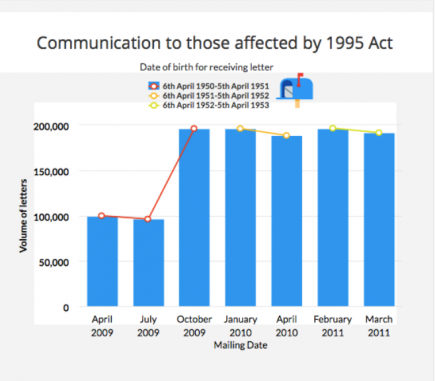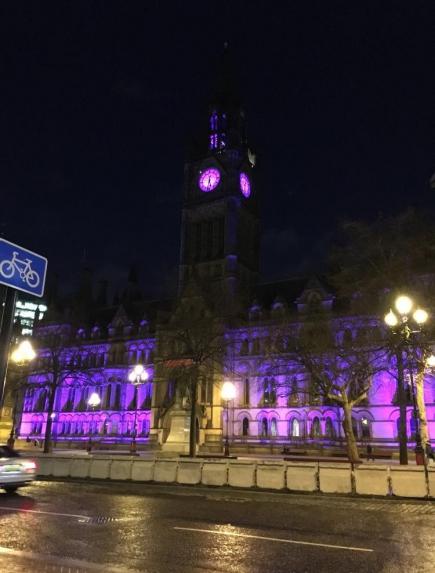It may be 100 years since women won the right to vote, but for one group of women, the battle for equality isn’t over yet.
The Women Against State Pension Inequality – better known as WASPI – are still demanding justice, seven years after the government raised their state pension age by up to six years without giving them any or only very little notice.
The changes, which were part of the Conservative Government’s State Pension Act 1995/2011, moved the retirement age of women born in the 1950s from 60 to 66, bringing it in line with that of the age for men.
The campaigners say that whilst they agree with equalisation of the state pension age, the unfair way in which the changes were implemented shattered their retirement plans, often with devastating consequences.
Protesting outside Manchester Town Hall on Friday night, local WASPI campaigners told MM of the distressing effects the sudden changes to their pension rights have caused.
One member of the Trafford Action Group, who wanted to be known only as Ann, said she’s in a position where she may have to sell her family home, because whilst she cannot claim her pension until she’s 66, she also can’t find a job because of her age.
The activist, who is 63 and has decades of experience in public services, said: “I’m a worker. I love working. I’ve worked all my life since I was 15. But although I’m experienced I can’t get a job because I can’t compete with the younger, tech-savy applicants.
“I know many women between this age gap who are in this position. They’ve paid into the system all their lives, but they can’t get their pension or find work, so they have to claim benefits or even sell their homes.”
Freedom of Information Requests carried out by Waspi show that women born between April 6 1950 and April 5 1953, were not sent letters informing them of the changes until at least 2009 -14 years after the 1995 act.
This meant more than a million women were only informed of a five-year increase of their pension age on average one year and four months before they were due to retire.
Other 1950s women were effected by a ‘second hit’ when the state pension age was raised to 66 in 2011. The FOI shows that over 200,000 women born after April 6 1953 would have been 58 when they were first personally informed of a six-year raise to their SPa.
Despite this evidence, the Conservatives deny not communicating the changes effectively.
The issue of the changes to the State Pension Acts 1995/2011 has been debated in parliament five times since 2015.

In a response to the most recent parliamentary debate over the issue in December 2017, the Government said: “Since 1995 the Government has gone to significant lengths to communicate SPa (State Pension age) changes.
“No changes will be made to SPa policy affecting 1950s women to avoid placing an unfair burden on working people.”
WASPI campaigners say they do not wish to see a return to the retirement age of 60, but will continue to fight until the Government acknowledge the mistake they made and compensate those who are now worse off.
The group estimate that approximately 3.4 million women have been affected by changes to the State Pension Act, many of whom are living in poverty.
Data on claimant counts from the Office of National Statistics does show that the number of women over 60 claiming unemployed benefits has increased between 2013-2017, more so than any other age group.
Jane Loxely, Chair of the East Cheshire, South Manchester and Trafford Action Group, said: “The tragedy is that us women will have worked nearly 50 years from aged 15 or 16 before getting SP, and will have paid around 45 years of National Insurance Fund payments.
“Why wasn’t that money ring-fenced for the 1950s women ? Or has someone had ‘their fingers in the till’?”
Another member of the Trafford Action Group, Fran Smith, said: “Women’s pay has never been equal to that of men’s. This is just another example of the inequalities against women in our society.”

SOLIDARITY: Manchester Town Hall was lit up in purple in support of the WASPI women
On Friday night, many local councillors as well as the Lord Mayor and Mayoress of Manchester, turned up in support of WASPI Women, when the town hall was lit up in purple.
Purple is the colour closely associated with the Suffragette Movement, the centenary of which will be commemorated this February, on the 100th anniversary of women winning the right to vote.
Ann said: “We are a new generation of suffragettes. We are fighting for our rights. [But] the way we have been treated after working hard all our lives…it’s just utterly devastating.”



